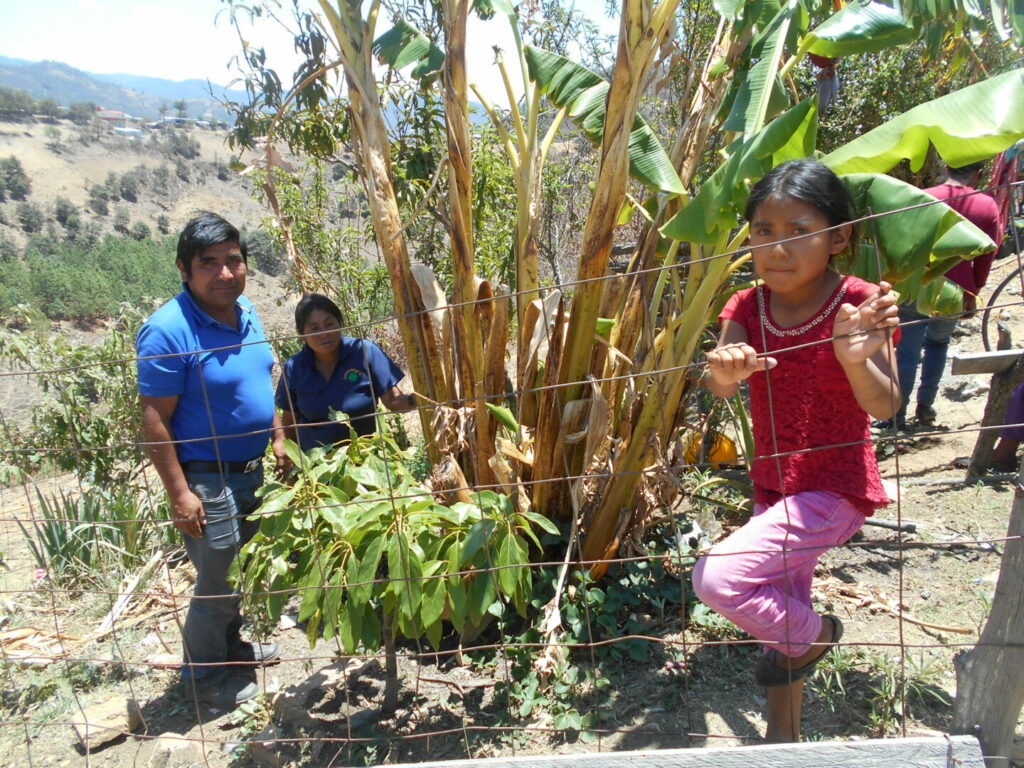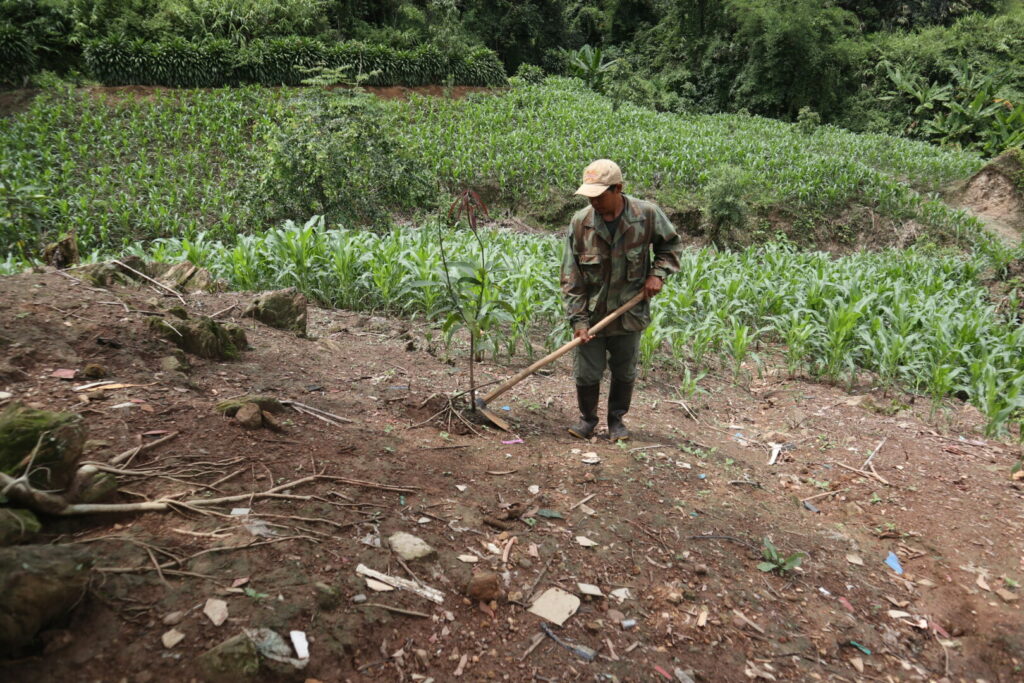Planting trees and helping farmers grow more crops is part of Plant With Purpose’s core work, but these activities depend on the health and availability of seeds.
Right now, the global seed supply faces a number of problems.
There is currently a lack of access to diverse and locally adapted seed varieties. This is due to a number of factors, including the consolidation of the global seed industry, the loss of traditional knowledge and practices related to seed saving, and the increasing prevalence of genetically modified seeds. Additionally, climate change is leading to more extreme weather events that can damage or destroy crops, making it difficult for farmers to access quality seeds.

Plant With Purpose trains farming communities to identify, collect, store and manage seeds, and prepare them for germination. Seed saving is an important aspect of the process. Many species require special germination before being planted, and participants also learn how to prepare these seeds.
In Northern Thailand, Plant With Purpose works with local communities to restore degraded landscapes and improve the livelihoods of rural families. Plant With Purpose works with farmers to implement sustainable farming practices such as agroforestry, terracing, and water conservation. Plant With Purpose also provides training in business skills and financial literacy to help farmers increase their incomes. Additionally, we work with local churches to provide spiritual guidance and support for community members.
The issue of seed supply in Thailand has been gaining attention in recent years, and it is likely to become even more important in the coming years. As demand for planting trees grows, access to seeds with sufficient quality becomes a challenge.

The first step in addressing the global seed supply issue is to ensure that farming communities have access to high-quality seeds and create a seed saving process. This can be done by providing training on how to identify good quality seeds and how to store them properly. Some big concerns include the following:
1. Contamination: Seeds can become contaminated with bacteria, fungi, and other microorganisms that can cause disease or reduce seed viability.
2. Loss of genetic diversity: If the same varieties of seeds are used over and over again, they may lose their genetic diversity and become less resilient to changing environmental conditions.
3. Poor storage conditions: If seeds are not stored in the right conditions (e.g., temperature, humidity, light), they may not remain viable for long periods of time.
4. Pest infestation: Insects and other pests can damage or destroy stored seeds if proper precautions are not taken to protect them from infestation.
Farmers participating in Plant With Purpose programs are taught how to recognize signs of poor quality or damaged seeds, such as discoloration or insect damage. They are also taught how to store their seeds in a way that will protect them from pests and other environmental factors that can reduce their viability. Proper storage techniques include keeping the seeds dry and cool, as well as using airtight containers or bags.
Once farmers have access to high-quality seeds, they are then trained on how to prepare them for germination. Many species require special treatment before being planted, such as soaking or scarification (removing part of the seed coat). Farmers are taught about proper planting techniques, such as spacing plants correctly and ensuring adequate soil moisture levels for optimal growth. Additionally, farmers learn about crop rotation and agroforestry practices that can help prevent soil depletion and disease outbreaks caused by monoculture farming practices.
Farmers learn these skills in Purpose Groups, which include Farmer Field Schools-a type of peer-to-peer agricultural education opportunity. Education modules include soil conservation and regenerative farming. In Farmer Field Schools around Thailand, participating farmers learn sustainable seed germination through experimentation with tea seeds. This is especially important in these regions, where tea is an important crop.
Through Purpose Groups, farmers are able to gain hands-on experience with tea seed germination and learn how to use sustainable practices when growing tea. They can experiment with different types of soil, water, and fertilizer to find the best combination for successful germination. Additionally, they can learn about the importance of proper irrigation and pest control techniques.

The Farmer Field School program also provides farmers with access to local expertise that can advise on how to maximize their yields and ensure their crops are healthy and productive. Farmers even also learn about the different types of tea available in the region and how to select the best varieties for their needs. Seed saving plays a part in the process.
Overall, Farmer Field Schools allow farmers in Northern Thailand to gain valuable knowledge about sustainable seed germination for tea crops. Through experimentation and guidance from experts, they can increase their yields while protecting the environment at the same time.
One additional aspect of addressing the global seed supply issue is avoiding GMOs introduced by large industrial seed companies. These companies often produce genetically modified crops that are designed for maximum yield but may not be suitable for local conditions or may contain undesirable traits such as herbicide resistance or reduced nutritional value. To avoid these risks, farmers are trained in their own ability to collect and store seeds, and to consider their products’ origins or contents.
Finally, it is important to understand the importance of preserving genetic diversity. Seed saving some of one’s harvest each year for replanting purposes instead of selling all of it at market prices can help preserve this diversity. This practice helps ensure that future generations will have access to a range of crop varieties adapted specifically for local conditions. This frees them from relying solely on commercially available varieties produced by large industrial seed companies which may not perform well in local environments due to lack of adaptation over time.
In conclusion, addressing the global seed supply issue requires training farming communities on how to identify good quality seeds; store and manage them; prepare them for germination; avoid GMOs; and preserve genetic diversity within their crops through replanting some of their harvest each year instead of selling all at market prices. By taking these steps now, we can ensure a healthy supply of seeds for the critical years ahead.

















